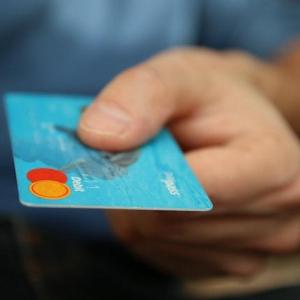
Set Clear Financial Goals:
Setting clear financial goals is the first step in building an emergency fund. Determine how much money you would like to save and set a timeframe to achieve this goal. Having a specific target will give you a sense of direction and motivation to stay on track. For example, you may set a goal to save six months' worth of living expenses within the next two years. To set realistic financial goals, assess your current financial situation, including your income, expenses, and debt obligations. Consider factors such as job stability, family responsibilities, and potential future expenses. With a clear goal in mind, you can create a plan to allocate funds towards your emergency fund consistently.Create a Budget and Track Your Expenses:
Creating a budget is essential for effective financial management. Calculate your monthly expenses, including essentials such as rent/mortgage, utilities, groceries, insurance, and debt payments. This will help you understand your spending patterns and identify areas where you can cut back. After calculating your monthly expenses, determine how much you can allocate towards your emergency fund. Aim to save at least three to six months' worth of expenses to provide a buffer in case of unexpected events. Track your income and expenses diligently to ensure you are staying within your budget and making progress towards your financial goals.Automate Your Savings:
Automating your savings is a powerful strategy to build an emergency fund consistently. Set up an automatic transfer from your checking account to a separate savings account every month. This way, a predetermined amount is deducted from your income before you have the chance to spend it elsewhere.By automating your savings, you remove the temptation to spend the money on non-essential items. It also ensures that you are consistently saving towards your financial goal, even if you forget to manually transfer the funds. Over time, these automated savings will accumulate and contribute to your emergency fund's growth.
Reduce Unnecessary Expenses:
Review your monthly expenses and identify areas where you can reduce unnecessary spending. This may include cutting back on discretionary expenses such as eating out, entertainment, and subscription services. Take a critical look at your spending habits and prioritize your needs over wants.To effectively reduce unnecessary expenses, start by tracking your spending for a month or two. This will help you identify patterns and areas where you can make adjustments. Look for alternatives or cost-saving measures for essential expenses as well. For example, you may consider meal prepping to save on dining out costs or negotiating lower rates for your insurance policies.
Redirect the money saved from reducing unnecessary expenses towards your emergency fund. By consciously making these adjustments, you can accelerate your savings and build your emergency fund more quickly.
Increase Your Income:
If your current income is not sufficient to save for emergencies, it may be necessary to find ways to increase your income. This can provide you with more financial stability and allow you to save more towards your emergency fund.Consider negotiating a raise at work based on your performance and market value. Alternatively, explore opportunities for additional income streams such as taking on a side gig, freelancing, or starting a small business. Many online platforms offer freelance opportunities that can be done in your spare time.
Increasing your income not only helps you save more for emergencies but also improves your overall financial situation. Remember to allocate the extra income towards your emergency fund rather than increasing your expenses.
Building an emergency fund is essential for financial security and preparedness. By setting clear financial goals, creating a budget, automating savings, reducing unnecessary expenses, and increasing your income, you can navigate unexpected financial challenges with confidence and peace of mind. Remember to regularly review and update your emergency fund as your financial situation evolves. With these strategies in place, you can build a solid emergency fund and be better equipped to handle any unexpected financial challenges that come your way.
Article
Be the first comment
Elite Article














